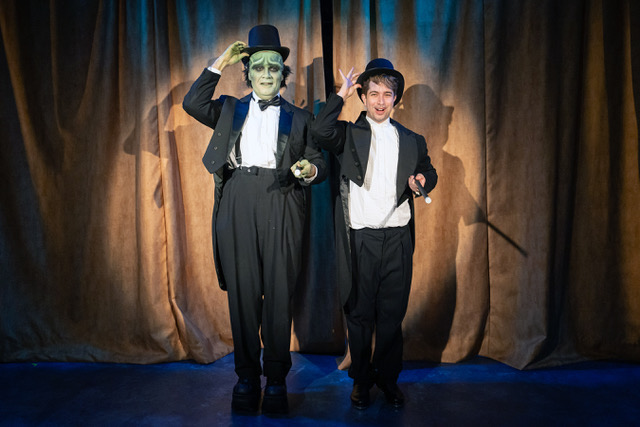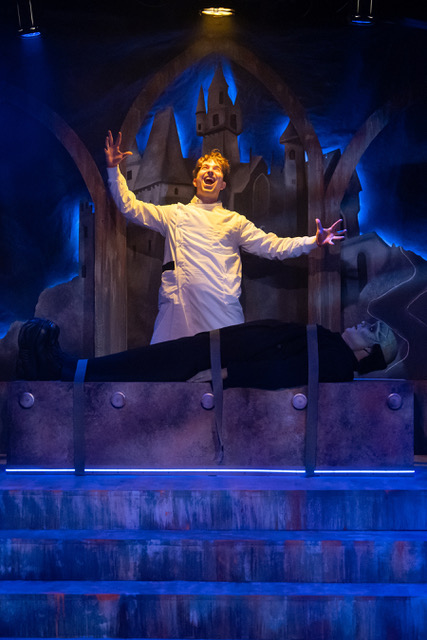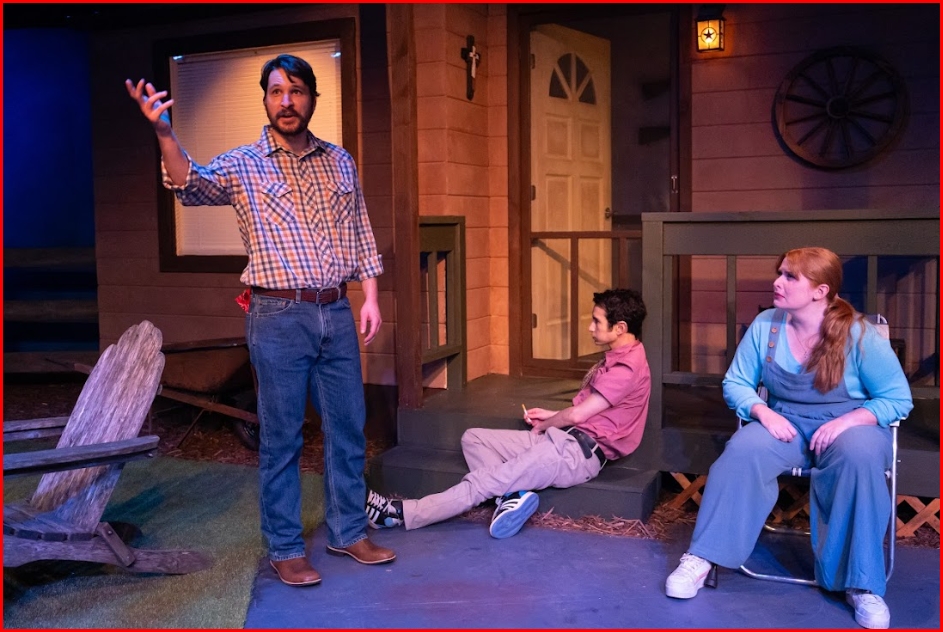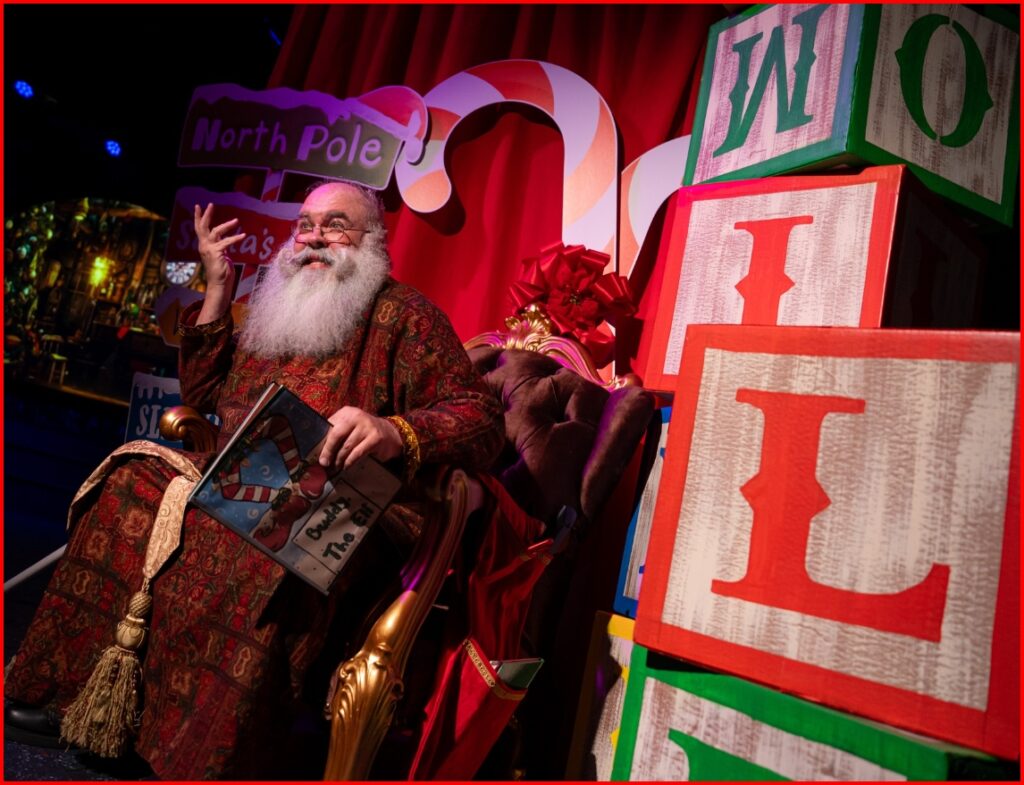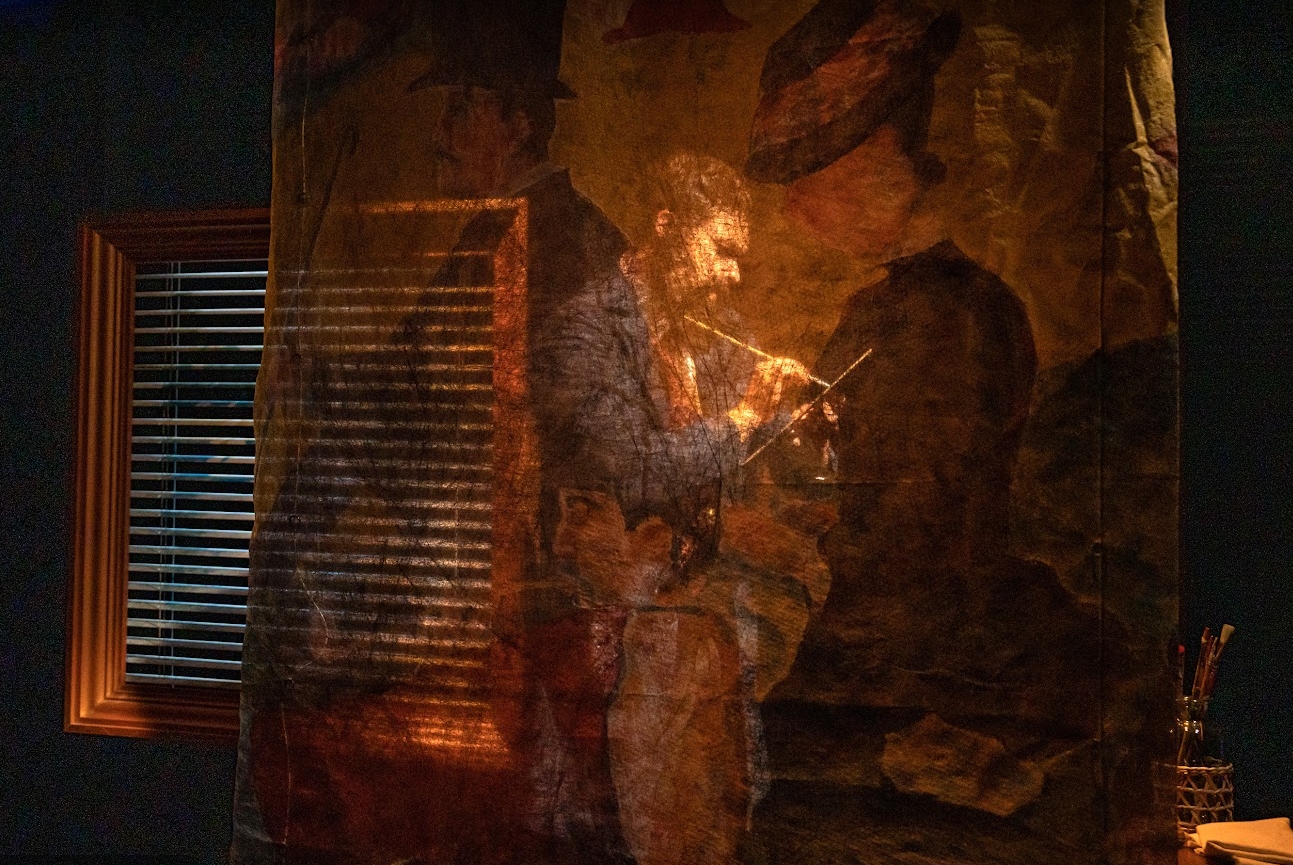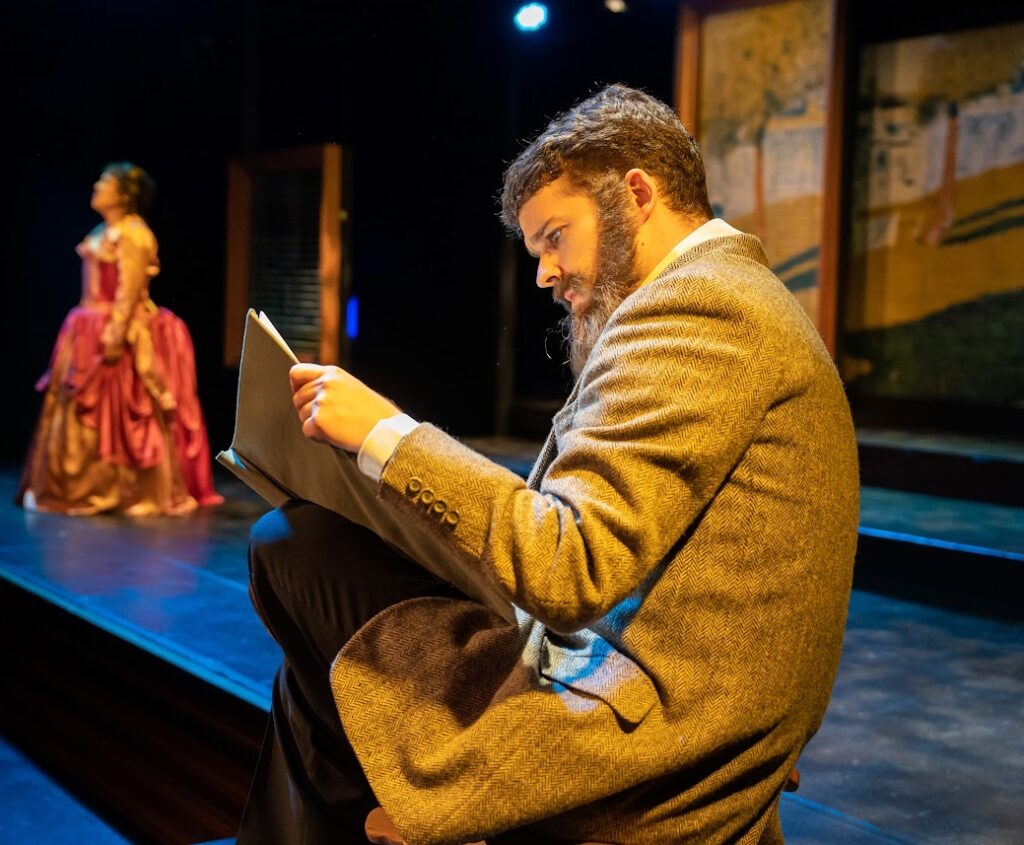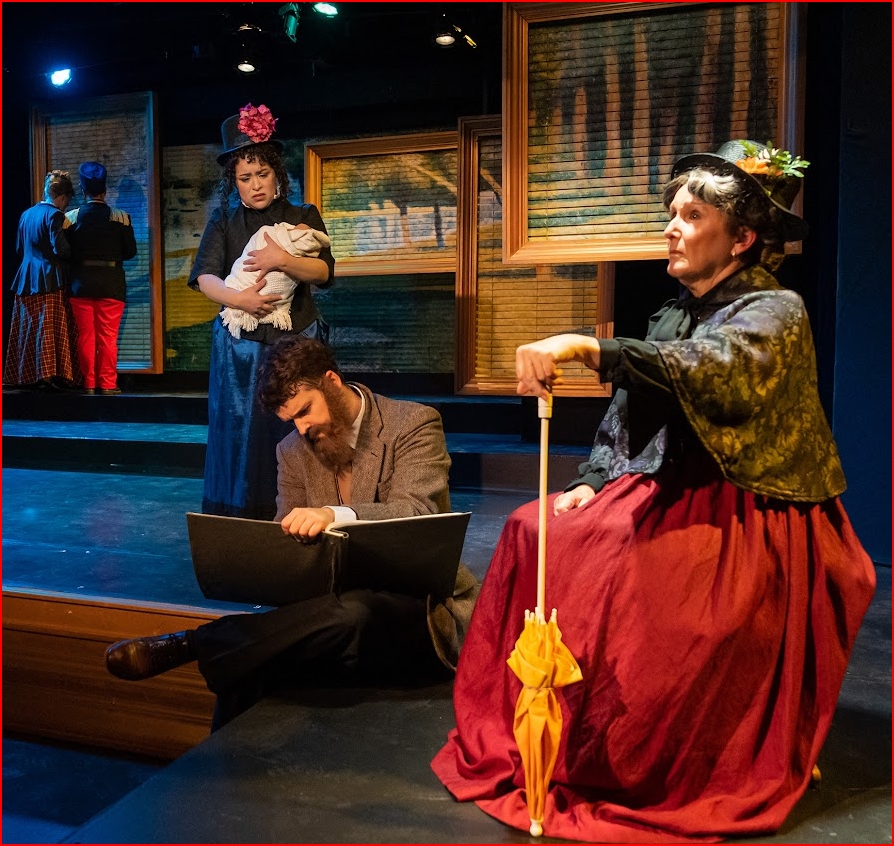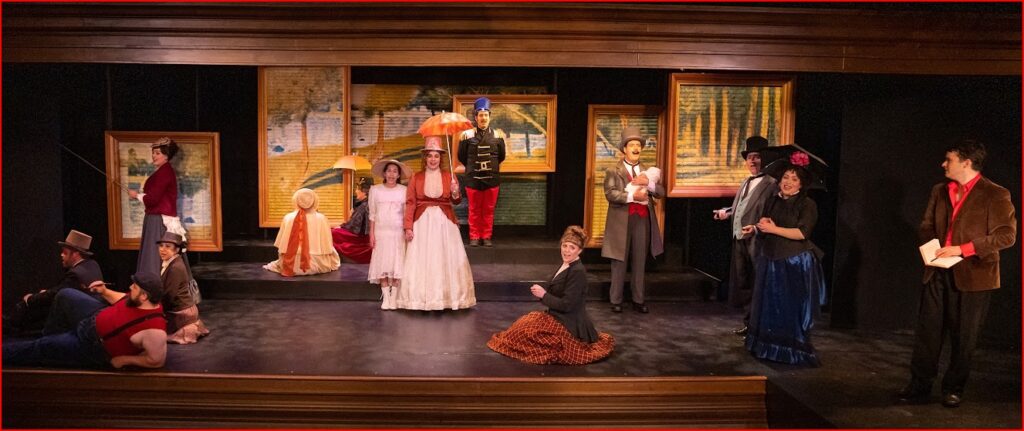By Joanne Engelhardt
Who knew that Samuel Beckett’s Waiting for Godot – ostensibly a play about almost nothing – could be a play about everything when put into the hands of two fine actors like Evan Winet and David Scott?
Los Altos Stage Company’s extraordinary production, directed by LASC’s executive artistic director Gary Landis, runs through Sept. 29 at Bus Barn Theater in Los Altos.
There are two opposing camps about Beckett: Those who think he’s a genius and those who find him, well, a bit of a bore. While the latter can, at times, be true, when left in the hands of Winet, Scott, and Landis, it most certainly is not.
” … Los Altos Stage Company’s extraordinary production …”
The play as presented has a rather unique format: it seems to start as the two key actors walk onstage and, 2 ½ hours later (including a 15-minute intermission), it ends when they meander offstage.
The actor’s catchphrase is “Nothing to be done,” which describes their attitude toward much during the play. Scott’s facial machinations are always in play – and meant to definitely steal focus from whatever else is happening. He’s by far the most interesting character to watch in Act 1. But Winet gets his chance to shine in Act 2.
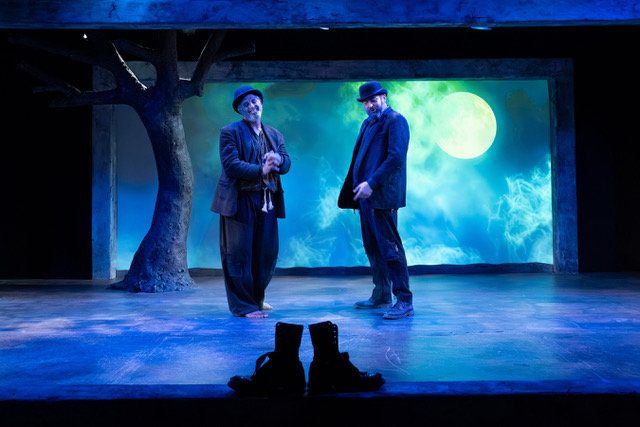
By the play’s end, the two are both equally praiseworthy and equally charismatic.
Along the way the audience learns that the two wanderers have known each other for about 50 years. And one wonders if maybe they’ve been meandering and probably making the same tired statements for that long as well.
Act 1’s basic premise centers around the fact that Estragon (Scott) is wearing shoes that are too tight for him and they’re making his feet hurt. He sits on a rock (kind of his own special resting place), then pulls and tugs to get the too-small shoes off his sweaty, smelly feet.
For his part, Vladimir (Winet) is more interested in making sure that the nearby tree is the one where they are supposed to meet Godot. But it’s made very clear that he doesn’t know if this is the day they’re supposed to meet up with him – or even whether they’re supposed to meet with him at all.
Two other secondary characters are introduced into Act 1 (they make a shorter appearance in Act 2): Pozzo and Lucky. Pozzo (John Stephen King) is a wealthy, noticeably unfeeling man, who has his servant, Lucky (a stoic Marc Berman) tethered to him by a rope. Poor Lucky is carrying so many things for Pozzo that he has to carry a few forward, then go back, pick up more of Pozzo’s possessions, and then carry them forward.
Pozzo tells the two men that he’s on his way to market to sell the hapless Lucky for a profit. For his part, Lucky is mute the entire time until he suddenly comes to life by doing a rather fanciful dance and then unleashing a torrent of words that are a combination of nonsense, Biblical references, and educated reality.
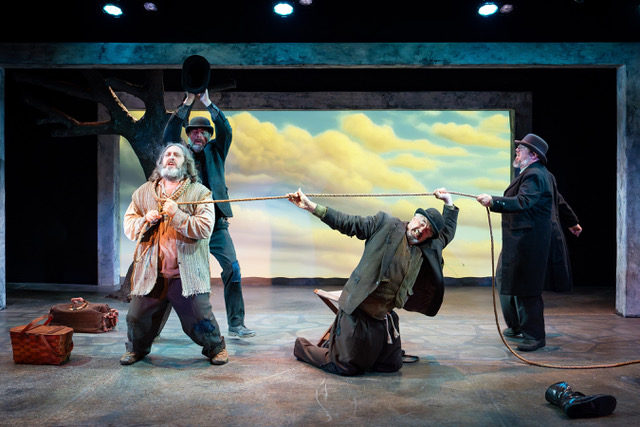
At play’s end, appreciate the nuanced acting, the fine scenic designs (especially when daylight is gone and a big, beautiful moon lights up the outside world) and the fact that 2 ½ hours have passed by rather quickly.
As for meaning?
Perhaps the best way to think about Beckett’s play is to realize that “…when everything is important, nothing is important.”
-30-
 Aisle Seat Executive Reviewer Joanne Engelhardt is a Peninsula theatre writer and critic. She is a voting member of the SF Bay Area Theatre Critics Circle (SFBATCC). Contact: joanneengelhardt@comcast.net
Aisle Seat Executive Reviewer Joanne Engelhardt is a Peninsula theatre writer and critic. She is a voting member of the SF Bay Area Theatre Critics Circle (SFBATCC). Contact: joanneengelhardt@comcast.net

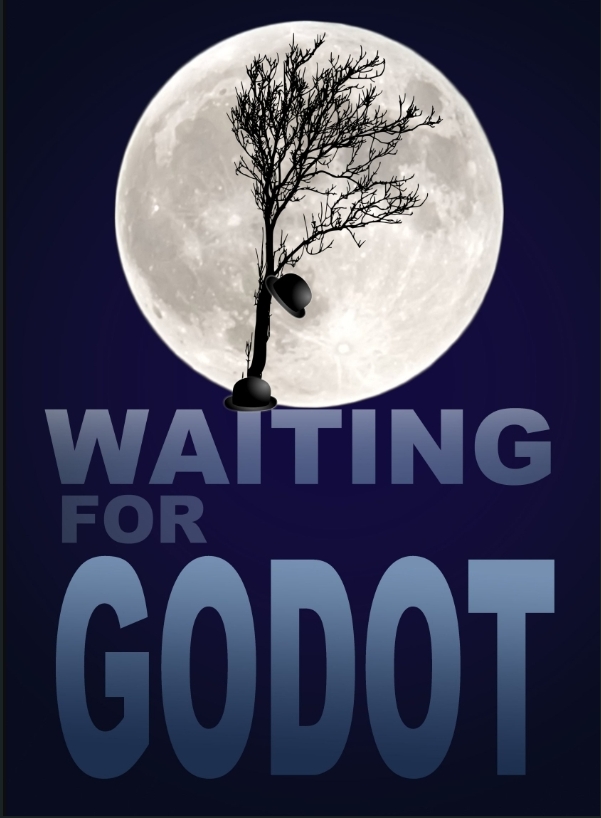

 Whenever you go to a Mel Brooks production, you know you’re in for a barrel of laughs, sight gags, and a quirky plot. But when it’s also a musical with sensational actors, singers, and dancers, it’s a given that it’s going to be good.
Whenever you go to a Mel Brooks production, you know you’re in for a barrel of laughs, sight gags, and a quirky plot. But when it’s also a musical with sensational actors, singers, and dancers, it’s a given that it’s going to be good.